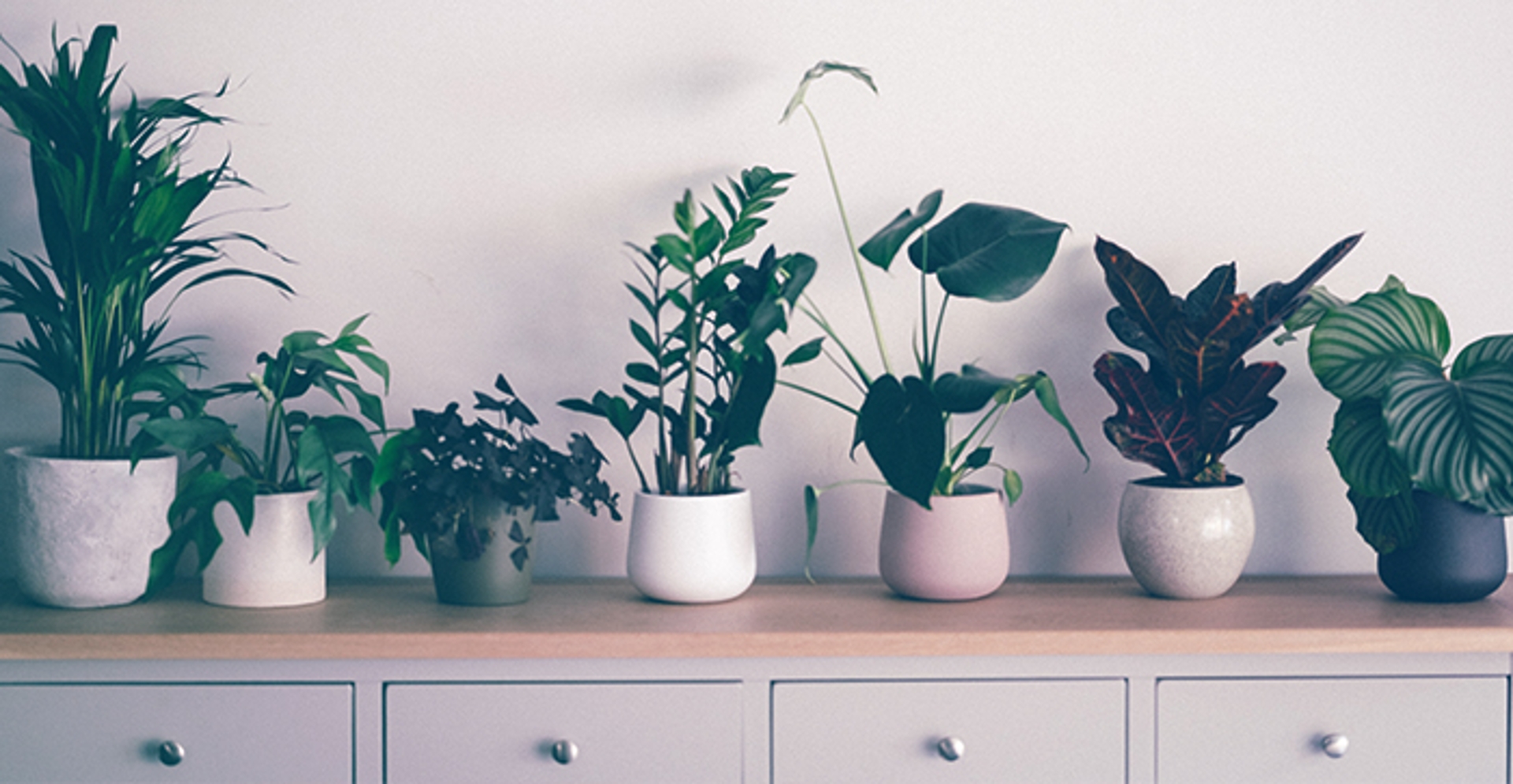11
Aug 2021
Houseplants are a wonderful way to add some freshness and greenery into your home. They help purify the air, boost your mood, and can even reduce your stress levels. It may seem overwhelming, especially if you don’t have a green thumb, but there are many options that are relatively easy to care for!
Pothos: This is one of the best houseplants to start with if you are new to plant care. They do well in bright, indirect sunlight or low light - perfect for bedrooms and offices that may not get a lot of sunlight. They only need to be watered about once every one to two weeks - when the soil is dry to the touch. Pothos are also one of the easiest plants to propagate - snip off at least 6 inches, place in a vase with water, and transfer to soil when roots begin to show. Benefits: Helps purify the air and eliminates odors. Note: toxic to pets so keep out of reach.
Spider Plant: Similar to the pothos, this plant can do well in low light or bright, indirect sunlight and only requires watering at least once a week or when the soil feels dry. If the soil still feels a little moist, wait another day or two before watering. Benefits: Removes pollutants and increases oxygen levels in the air. Note: non-toxic to cats & dogs.
Snake Plant: Snake plants prefer indirect sunlight, but can also grow in low light, albeit a bit slower. They don’t need to be watered frequently - allow the soil to dry between waterings as too much water can cause root rot. Benefits: Removes pollutants and increases oxygen levels in the air. Note: toxic to pets so keep out of reach.
Aloe: The Aloe plant needs 6-8 hours of bright, indirect sunlight a day and needs deep, but infrequent watering Allow the top 1/3 of the soil to completely dry before watering again. Over-watering can rot the plant. Benefits: While the other plants have benefits of purifying the air quality, the aloe plant has added benefits from the gel in its leaves which can be used to relieve pain from scrapes and burns. Note: toxic to pets so keep out of reach.
Peperomia: This plant needs plenty of indirect sunlight, but can also tolerate low light conditions. They don’t need frequent watering; wait until the top 1” - 2” layer of soil in the pot is dry and water until it drains out of the bottom. Be sure not to keep the pot sitting in a saucer of water as this can cause root rot. Benefits: Reduce dust levels in the air, absorb pollutants, and increase humidity. Note: non-toxic to cats & dogs.
ZZ Plants: ZZ plants thrive in medium to bright indirect light and can tolerate low light conditions. Water once every two to three weeks and allow the soil to dry between waterings. Benefits: One of the best plants for absorbing pollutants in the air. Note: toxic to pets so keep out of reach.
Boston Fern: This plant needs bright, indirect sunlight and lightly moist (but not oversaturated) soil at all times. If the soil gets too dry, the leaves will quickly dry and drop off the plant. Benefits: Improves air quality and humidity levels and absorbs harmful pollutants. Note: non-toxic to cats & dogs.
A few extra tips to help you care for your house plants:
1. Keep your plants in well drained pots!
2. Wipe the leaves with a damp cloth if they start collecting dust.
3. Many of these require infrequent watering, so you may be able to keep them on the same watering schedule! A notebook or calendar is a good way to help keep track of when you have watered your plants.
4. If you notice some leaves are dying, it doesn’t mean the entire plant is dead - just snip off the dead leaves!
4. If you notice some leaves are dying, it doesn’t mean the entire plant is dead - just snip off the dead leaves!
With these easy to care for plants, anyone can bring a little life into their living space.






